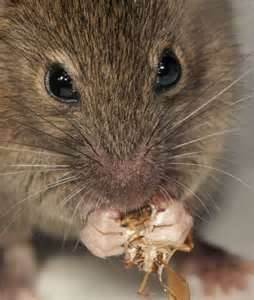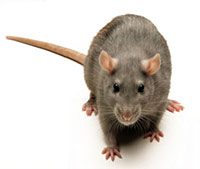
Rat Removal San Diego
At Critter Gitters we provide the best rat and mouse removal services available in San Diego. Whether your house requires rat and mouse proofing to protect yourself from future infestations, or clean-up services to disinfect the area they formerly occupied.
Critter Gitters will never use dangerous poisons that could harm you and your pets. Keeping your family safe and healthy is our main priority. Removing the odors left by decomposing rats and mice is required to make sure the air quality in your home is at healthy levels.
If you have a rat or mouse problem, contact Critter Gitters at 619-820-8993 and speak to a professional today.
We Provide the Following Services:
- Rat and Mouse Trapping
- Rat and Mouse Proofing
- Rodenticide Baiting
- Clean-Up and Disinfection
Household Damage
Rats and Mice can cause damage to your home and life in a plethora of ways. Fruit on the kitchen counter, insulation, electrical wiring, and even piping can be chewed by rodents and possibly create a dangerous situation in your home that is undetectable until it’s too late.

Health Hazards
Along with the destruction of your home, rats and mice can play host to a variety of diseases that can affect you and your family. A rat bite can cause someone to contract Rat Bite Fever, which while showing symptoms of the flu can end up being fatal.
Hantavirus is contracted from rats and mice simply by coming in contact with urine or droppings. This affliction can result in fever, chills, body aches, and severe stomach issues. If rodent urine enters the body through a minor cut, it is possible to contract Weil’s Disease, resulting in fever and even kidney failure. Lime disease is another disease that rats and mice are known for carrying. Lime disease can cause skin lesions, fever, headaches and more.
Rodents can reproduce at alarming rats and this is why the problem should be taken care of as soon as you see signs of a rodent infestation.
Avoid putting it off until it’s too late. Get rid of your rat or mouse problem with Critter Gitters.
Giant Rat Infestation
Rat Removal San Diego

San Diego has a much more prevalent rat population than mouse population. Rats are far more crafty to trap and much more dangerous than mice. Homes most commonly get rat infestations when a female is looking for a safe place to have her babies. Once you have one rat in your home you will almost always automatically have many rats in your home. Rats will follow the scent of the female rat into your home usually in the same entrance that the female initially created.
San Diego residents love to eat healthy so we love our fruit trees. However the fruit that keeps San Diego residents healthy can also attract rats. Watch out for homes that have a lot of fruit trees with abandoned or rotting fruit on the ground. Rats will also eat fruit that is still on the trees, this will contaminate the fruit. If you don’t notice the fruit has been bitten it can make you extremely sick. We recommend that if you have fruit trees that you use rat guards on your trees. This will prevent them from climbing trees and eating fruit still on the tree. Also get rid of all fallen fruit on the ground. Even if you do not intend to eat the fruit you should pick it up and compost it or throw it away to prevent attracting rats.
Another thing that will put you at risk is an abandoned, vacant, or foreclosed home near your own home. Keep in mind the reason homes get infested is because the alpha male rats force females to separate to look for a place to nest. Vacant homes or homes that are not well kept are an ideal nesting place for rats that are going to give birth.
Critter Gitters in San Diego is an expert rat removal company. If you suspect a rat the best time to call is now.
Frequently Asked Questions About Rats
Are there rats in San Diego?
Odds are if you are on this page of our website, you’re a local San Diego property owner looking for a rat removal company. However, those of you who are visiting our site from other regions and are wondering whether or not San Diego has rats, the simple answer is yes. Despite the fact that San Diego is arguably one of the most beautiful cities in the world, we still have our fair share of problems with rodents.
Does San Diego have more rats than other cities?
All cities have rats and San Diego is no exception. Wherever there is a high population density of people, there is also a higher population of rats. San Diego is the 8th most populous city in the United States, but ranks almost 20th in the United States for number of rat removal calls. It’s not really possible to take a rat census. However, it is fairly safe to assume that the more rat removal service calls that are requested, the more rats there are in a given city.
What types of rats are there in San Diego?
There are three species of rats that can be found in the greater San Diego area. The most common type of rat found in San Diego is the roof rat. Roof rats are unique in the fact that they prefer not to burrow. As their name implies, they live above ground. They can be gray or brown in color. Less common species of rats in San Diego include the Norway and Wood Rats. Regardless of the type of rats you have on your property, it is important to have them removed as soon as possible.
Do bird feeders attract rats?
The simple answer to this question is yes. Rats prefer grains and nuts. If they have an easily accessible food source like bird seed, they will come back over and over again. Keeping bird seed from falling from your bird feeder onto the ground is an important step to minimizing the potential rat food source. Additionally, you should keep your bird feeder a minimum of 8 feet away from surfaces and other objects. Rats can jump very long distances and can easily climb to access bird feeders. Changing the type of bird seed you use can also reduce the likelihood of attracting rats. Some bird lovers have found that rats and squirrels are unlikely to eat Nyjer seed (thistle seed). Using a bird seed such as thistle seed will still keep birds happy without attracting rats.
Do rats eat fruit from trees?
Absolutely. Rats are opportunistic eaters that will eat fruits without hesitation. They are particularly partial to citrus fruits which are incredibly common throughout San Diego. There are times when rats do not eat the entire fruit on a tree. Occasionally they will only take a single bite out of a piece of fruit and leave the rest on the tree. You should always carefully inspect fruit before you eat it. Consuming a piece of fruit that a rat has taken a bite of, is a sure-fire way to become sick or even contract a disease.
What diseases do rats in San Diego carry?
Rats all over the world carry diseases. The rats in San Diego are no exception. Rats in San Diego have been known to carry:
- Hantavirus-Symptoms from Hantavirus exposure can start within 1-8 weeks of exposure to rat urine, feces, or even saliva. The initial symptoms can include but are not limited to fatigue, muscle pains, nausea, diarrhea, headaches, dizziness, chills, and abdominal pain. Symptoms that develop later can include shortness of breath. Hantivirus is extremely dangerous, it can even be lethal. The mortality rate for Hantavirus Pulmonary Syndrome is 38%.


